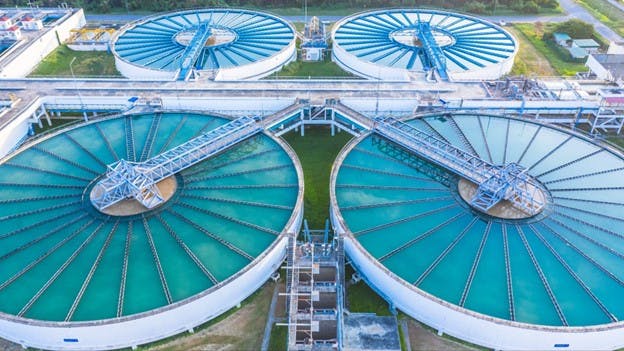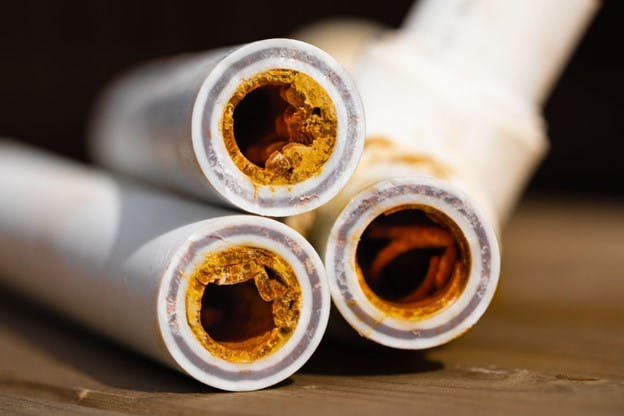October 2023
The Hard Facts About Calgary Water Quality
When you think of the great cities in Canada, Calgary, Alberta should spring instantly to mind. Home to 1.4 million people, it’s the center of oil industry, agriculture, and the home of many of the largest companies in the country. It’s also a great place to live.
Calgary came in third in the world on the Economist Intelligence Unit’s list of the most livable cities in the world, beating out fellow Canadian gems Vancouver and Toronto and every other city in North America. Its healthcare, education resources, and infrastructure stand head and shoulders above most other cities in the world. But that’s not all.
The city of Calgary is full of natural beauty. Seated between rivers, plains, and Canada's Rocky Mountains, Calgary presents unique opportunities for outdoor activities. And while you might think a city that relies heavily on the oil industry and cattle might ruin the good times with pollution, Calgary is considered one of the cleanest cities in the world.
But what we want to know is how Calgary water quality holds up. Stay with us as we take a deep dive into Calgary’s drinking water quality. We’ll look at all the gritty details to find out what’s coming out of those Calgarian faucets.
The Dirty Truth About Calgary Water Quality
If you live in Calgary, consider a water filter due to chemical run-off and water hardness. HomeWater’s products can help improve the water quality in your home.
Explore our:
Where Does Calgary's Tap Water Come From?
The Rocky Mountains aren’t only good for skiing. They also supply the water Calgarians drink. More specifically, Calgary’s water comes from the Bow River and the Elbow River, which are fed by Rocky Mountain snowmelt and rain.
The Bow River Watershed is massive. At 7,770 square kilometers, it accounts for 60% of Calgary’s water supply. Originating at the Bow Glacier, the Bow River is a tributary of the South Saskatchewan River. Water from this river is treated by the Bearspaw Water Treatment Plant.
The other 40% of Calgary’s drinking water comes from the Elbow River. The much smaller Elbow Valley Watershed covers 1,227 square kilometers and empties out into the Glenmore Reservoir. Water from the Elbow River is treated at the Glenmore Water Treatment Plant.
All water infrastructure — including treatment plants, sewers, service lines, and wastewater management — is owned by the city of Calgary, but ENMAX is given the task of billing and customer service.
How Is Calgary Water Treated?
Calgary water quality and treatment starts with source water protection. Water resources are precious, and various Canadian and First Nations governments have a hand in making sure Calgary’s watersheds are well maintained.
Once water is collected, Calgary utilizes two large water treatment plants to turn outdoor surface water into Calgary tap water. The Glenmore Water Treatment Plant handles all water from the Elbow Valley Watershed. This treatment plant covers roughly 40% of the city’s drinking water needs.
The larger portion comes from the Bearspaw Water Treatment Plant. This plant treats all water from the Bow River. Combined, these two water treatment plants are capable of handling 950 megalitres of water each day.
Once the source water has been collected by either treatment plant, it goes through a series of filtering and disinfection stages.
Straining and Preparing
The water is forced through coarse screens, which remove larger debris and prepare it for further treatment.
Flocculation
The screened water is mixed with aluminum sulphate, sand, and polymers. These combine with most of the remaining debris, silt, and micro-organisms to create heavy clumps called floc. The floc sinks down to the bottom of the mixing tank while the remaining clarified water leaves the tank for further treatment. The floc is strained and dried before being sent off to landfills.
Primary Disinfection
The clarified water is then treated with a first dose of chlorine, which kills most of the remaining pathogens in the water. To give the chlorine enough time to work, the water is left to sit before being sent on for advanced filtration.
Filtration
Now that most of the large debris has been removed, the disinfected water is gravity fed through large carbon and sand filtration systems. This captures much of the remaining silt and particles in the crevices of the filter. The filters are backwashed every few days to keep them from becoming clogged up.
Storage and Secondary Disinfection
Once the water is filtered, it is stored and managed before being sent to your homes and businesses using high-pressure pumps. Before the water is sent through the mains, a secondary chlorine treatment is applied to increase the chances of the water not being reinfected on its way to Calgarian homes.
Does Calgary Fluoridate Its Water?
In 2011, Calgary voted to become one of the few major cities in North America that do not fluoridate their water.
In late 2021 there was a vote to reintroduce fluoride to public drinking water, but as costs to implement it have ballooned to three times the original estimates, implementation is taking a while. As of July 2023, fluoride has not yet been reintroduced.
Many cities add fluoride to their water supplies as a public health initiative. Fluoride is known to decrease instances of dental caries in populations where it is added or naturally found in high enough levels.
Fluoride does occur naturally in Calgary’s water in a concentration of between 0.1 and 0.4 mg/L. However, this is considerably lower than the 0.7 mg/L considered optimal for dental health.
If protecting your dental health with fluoride is important to you, fluoridated toothpastes and mouthwashes can be used.
Does Calgary Tap Water Have Chlorine?
Yes, Calgary treats its drinking water with two courses of chlorine during treatment and delivery. Chlorine is a common water disinfectant that is safe in the doses used in Calgary's water treatment. However, it can leave an unpleasant taste and odor in the water that many Calgary water customers filter out.
Chlorine also interacts with organic matter in the water to create disinfection byproducts like trihalomethanes (THMS), which are known carcinogens.
Is It Safe to Drink Tap Water in Calgary?
Tap water in Calgary is considered safe to drink by Canadian authorities based on minimum quality standards for the contaminants they measure.
It’s important to realize, though, that the standards held by water authorities change over time as more is learned about various contaminants and their dangers. Some contaminants scientists are just learning more about, like PFAS, have rapidly changing regulations. The concentrations of PFAS thought to be safe just a few years ago are now being heavily questioned.
Other common contaminants like microplastics have no economical way to test for them and remove them at scale, so they aren’t regulated anywhere in the world.
Is Calgary Water Quality Good?
While Calgary is known to be one of the cleanest cities in the world and goes to great lengths to protect its water supplies, the city is not immune to pollution.
There is growing concern about storm runoff and wastewater contaminating local rivers with dangerous chemicals. This includes the Bow River, where 60% of Calgarian drinking water comes from.
The city’s agriculture industry makes it particularly vulnerable to pesticides from runoff. Also, the wastewater treatment technology Calgary uses is not meant for pharmaceuticals and antibiotics, which are excreted and sent down toilets daily.
Local rivers have detected amounts of pharmaceuticals, hormones, antibiotics, and pesticides. Although levels of these are not yet above legal allowances, they are concerning. Increased exposure to many of these chemicals is known to raise the risk of breast and prostate cancers.
Another major problem with Calgary water quality is water hardness, which we’ll talk about in the next section.
Is the Water in Calgary Hard Water?
The water in Calgary is considered very hard, which is a problem for residents who don’t use a water softener or a salt-free water conditioner.
Water hardness is a measure of minerals like calcium and magnesium dissolved in the water. As water passes through nature, it breaks down and absorbs these minerals from rocks and soil. In Calgary’s case, it's picked up from the mountains the water originates from.
Water with concentrations of these minerals over 120 mg/L is considered hard, while anything above 180 mg/L is very hard. Depending on the time of year, water flowing into your Calgary home can have a reading of over 200 mg/L.
While hard water minerals are not considered dangerous to ingest, they can wreak havoc on your home, clothes, and skin. If you’re in Calgary and don’t have a water softener, you’ve probably noticed some of the following:
- Chalky residue on your surfaces that give bacteria places to breed
- Corroded and clogged pipes and fixtures that rob you of water pressure
- Water-using appliances like dishwashers working harder than they should while leaving spots on your glasses
- Clothing fading and wearing out too fast as the minerals damage clothing fibers in the laundry
- Soap scum building up on your skin, which can cause it to be dry and itchy and even cause eczema flare-ups.
- High soap and shampoo usage — when minerals bind with soap, it becomes less effective (meaning you need to use a lot more of it) and harder to rinse off
If you live in Calgary, getting a high-quality water softener will improve your life.
Does Calgary Water Contain Lead?
The water flowing from the Elbow and Bow Rivers does not contain lead. However, there is a small chance your public water service lines or some of the plumbing in your home do. The city of Calgary estimates only about 500 homes built during WWII still contain lead plumbing. The city is currently working to remove the last remaining lead service lines.
Lead is a toxic metal that affects nervous system function and development. It is particularly dangerous for young children and pregnant women. There are no safe levels of lead in a child’s blood, according to the U.S. Centers for Disease Control and Prevention.
If you believe your service lines contain lead or you have lead in your home plumbing, you should call 311 and discuss your options. These can include rebates for installing certain water filters or getting the necessary information to safely replace them. Always call 311 before you replace lead pipes in your home plumbing or private service line.
Get the Best Water Quality for Your Calgary Home
Calgary is ranked as one of the top cities in the world to live in, and it is also one of the cleanest. However, no city is perfect. Calgary water quality is hurt by hard water minerals, chlorine residue, disinfection byproducts, and even dangerous chemicals from agriculture and sewage.
If you want only the best-tasting, cleanest water from your tap, HomeWater has you covered.
Our North American-made water filters are environmentally friendly and affordable.
The HomeWater UPSTREAM 4-Stage Whole Home Water Filter protects every tap in your home from chlorine, disinfection byproducts, lead, microplastics, pathogens, and more. Add on a salt-free water conditioner to free yourself of hard water woes, as well.
Or if water softening is your main concern, try the All-In-One Whole Home Filter & Water Softener Combo, which will easily handle most water-softening needs while also filtering out chlorine and sediment. Best of all, the sediment filter is self-cleaning, so you don’t need to replace it.
Still not sure? Take our quick filter quiz and find the exact right product for your needs.
Related Articles
September 2023



